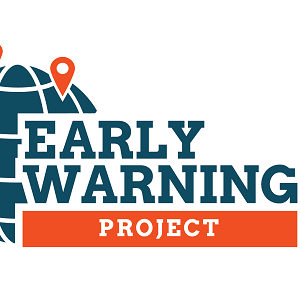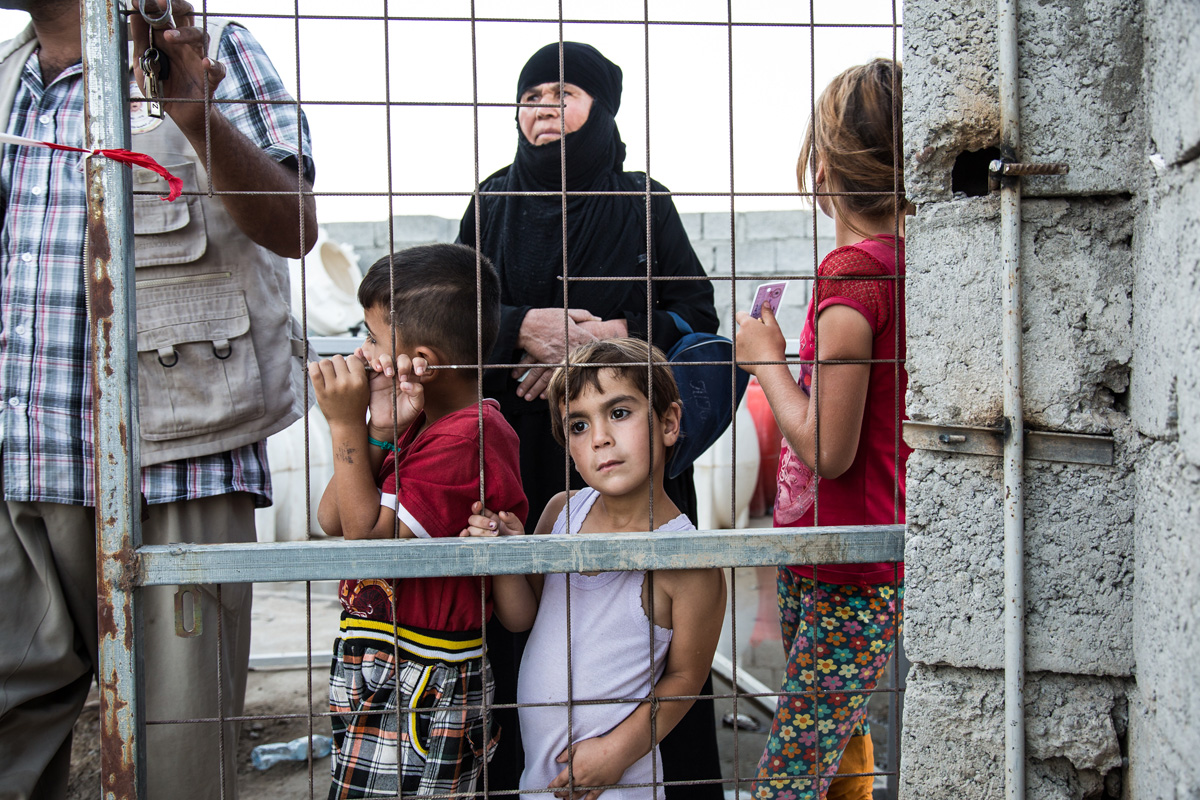-

Atrocities Early Warning Q&A: Ben Valentino
July 18, 2014
This is the first in what we hope will be a long series of Q&A sessions with people doing interesting and important work on atrocities early warning or prevention. We thought it fitting to start the series with Ben Valentino, associate professor of government at Dartmouth College, who got the ball rolling on what would become the Early Warning Project while on a fellowship at the U.S. Holocaust Memorial Museum's Center for the Prevention of Genocide.
-

Complementary Approaches to Forecasting Political Events
July 14, 2014
Advances in technology and the popularity of individuals like Nate Silver have given rise to the exciting idea that political scientists can predict the future using statistical models. Despite the recent attention forecasting has received, it is still difficult to do well, especially for rare political events like the onset of mass atrocities. In order to address this challenge, the Early Warning Project has developed a system that combines statistical forecasting with crowd-sourced forecasts. This combination serves as the focus for this post.
-

Diagnosing Prospects for Peace in Eastern DRC
June 30, 2014
We recently added the following question to our opinion pool:
Before January 1, 2015, will the leader of another major militia group in eastern Democratic Republic of Congo surrender?*
This might seem like an odd topic for a system designed to assess risks of future mass atrocities. As this question implies, however, we also plan to use the system from time to time to assess prospects for the cessation or reduction of atrocities in cases where they are already happening. Our open question on the possibility of a peace deal this year in Colombia is another example.
-

Why State-Led Mass Killing in Kenya Is Unlikely
June 28, 2014
The evolution of Kenyan politics since its last episode of mass killing, after the country's December 2007 elections, hardly appears promising. In 2013, during a presidential election widely considered freer and fairer than its predecessor, the Kenyan electorate returned to power two of the alleged instigators of the 2007–2008 violence. In 2012, a newly assertive military began operations against al-Shabaab in southern Somalia. In the two years since, the insurgency and its Kenyan affiliates have used the military's operations to justify reprisal attacks in several major Kenyan cities.
-

Predicting Violence Within Genocide
June 24, 2014
Can we predict when and where violence will likely break out within cases of genocide? I present a theoretical model to help identify areas susceptible and resistant to violence during genocide. The model conceptualizes violence onset as a function of elite competition for control of the state from above and the ethnic segregation of society from below.
-

For Civilian Protection, Mission Matters, Too
June 18, 2014
A couple of recent posts on this blog (here and here) have examined whether UN peacekeeping operations (PKOs) can help prevent mass atrocities and reduce battlefield violence, especially in the context of South Sudan. The conclusions reached on how peacekeepers can shelter civilians and save lives are well taken.
-

Escalating Risk of State-Led Mass Killing in Iraq
June 14, 2014
Since the start of the year, our early-warning system's opinion pool has included a question about the risk of a new episode of state-led mass killing* occurring in Iraq before 2015. As noted in a recent post, our forecasters have consistently seen that country as one of the cases at greatest risk worldwide, and their concern increased significantly in May as the civil war in predominantly Sunni parts of the country escalated.
-

UN Peacekeeping and Violence in Civil Wars
June 13, 2014
A recent post on this blog by Alessandra Necamp aptly discusses our paper in the American Journal of Political Science, which shows that when appropriately composed in personnel type and number, UN peacekeeping missions reduce violence against civilians in civil wars. These findings can be held in light of a recent Amnesty International report on increasing violence against civilians in South Sudan.
-

Flare-Up in Ethiopia’s Oromia Region
June 9, 2014
Our statistical risk assessments continue to identify Ethiopia as one of the world’s countries at greatest risk of state-led mass killing, and recent reports of violent repression in Ethiopia’s Oromia region suggest one pathway by which that dismal but still unlikely outcome could happen.
-

Policy Options for Ending Attacks on Civilians in Sudan: Wiki Survey Results
June 6, 2014
Since May 28, we have been running a wiki survey asking “What are the best policy options for engaging with the government of Sudan to end or curtail its attacks on civilians across the country?” Recently overshadowed by the civil war in South Sudan, atrocities in Sudan have continued in regions such as Blue Nile, Kordofan and Nuba Mountains.


